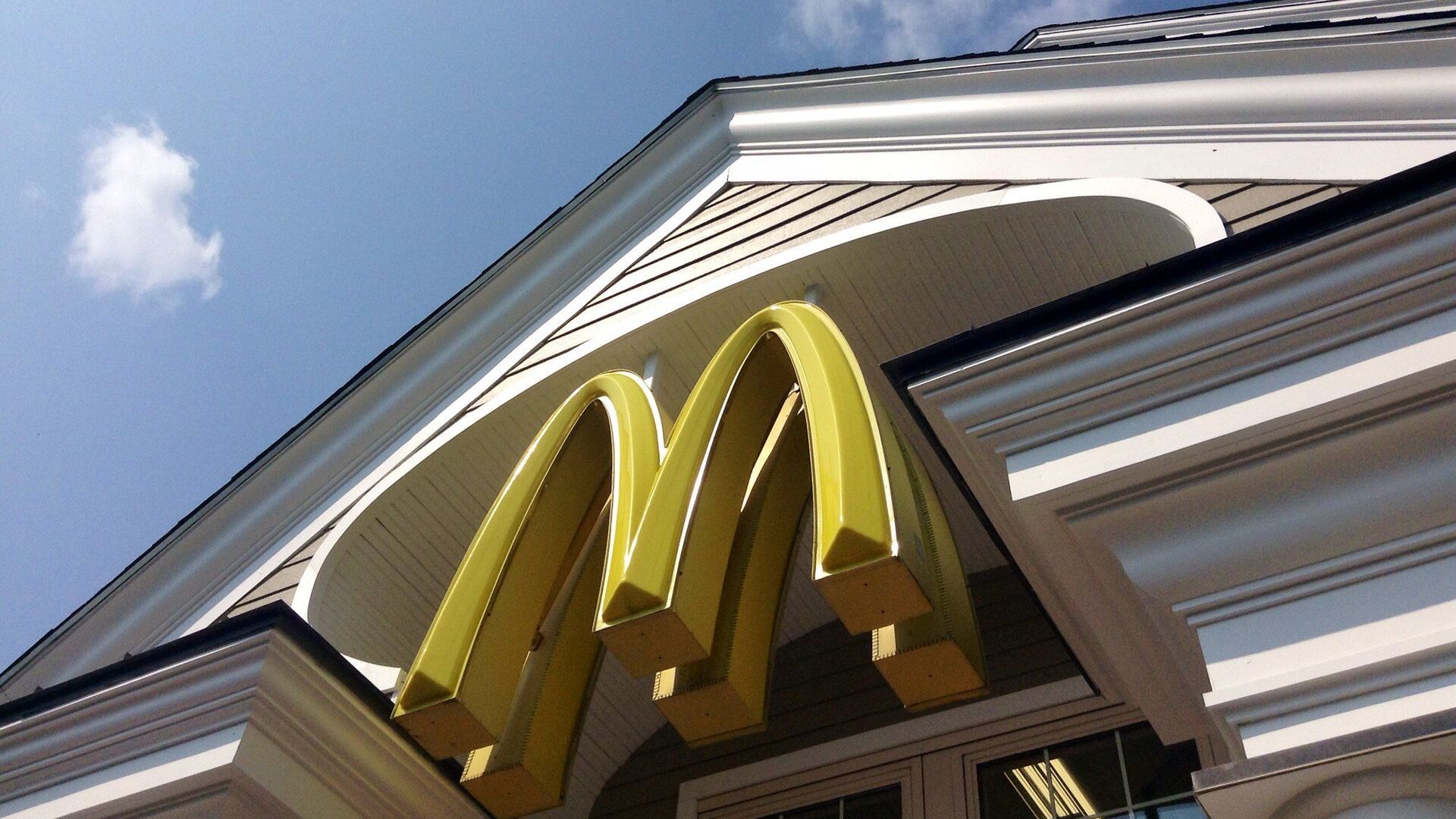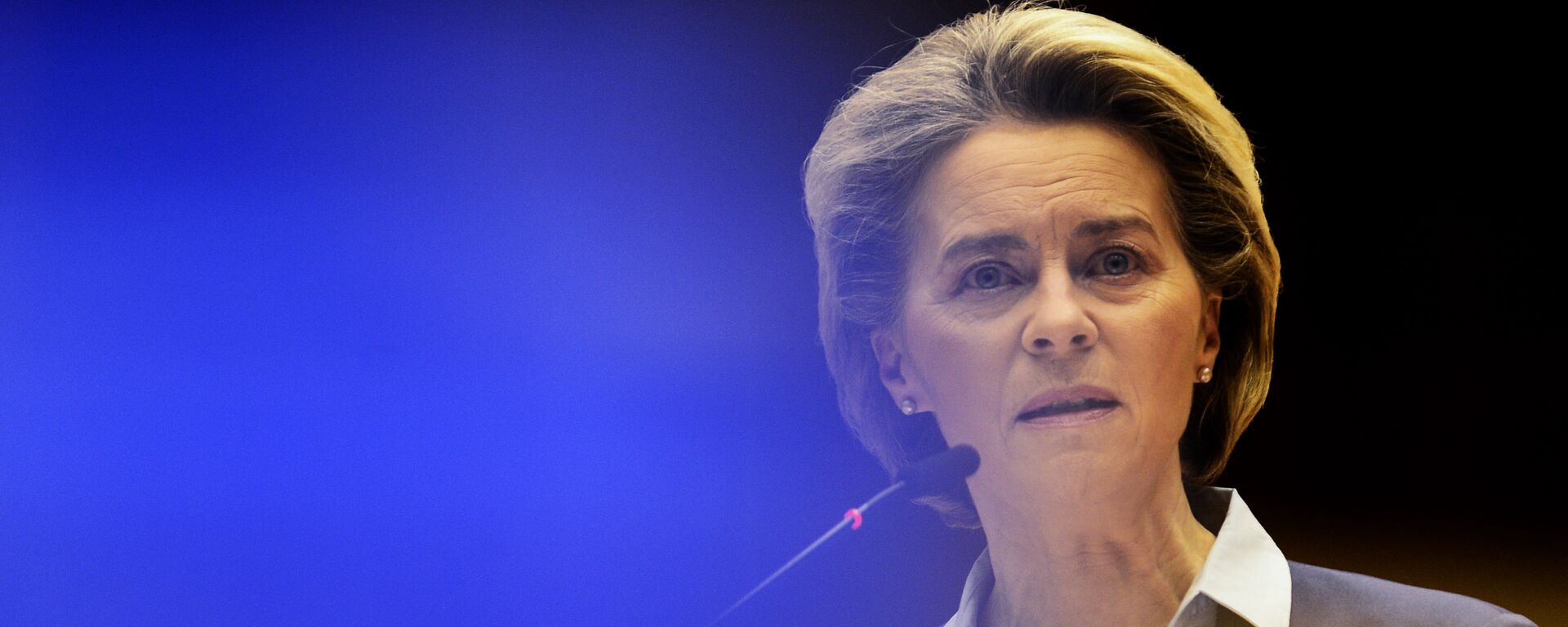https://sputnikglobe.com/20220417/im-not-lovin-it-mcdonalds-germany-switches-cooking-oil-mixture-amid-ukraine-related-shortages-1094835924.html
I’m Not Lovin’ It: McDonald’s Germany Switches Cooking Oil Mixture Amid Ukraine-Related Shortages
I’m Not Lovin’ It: McDonald’s Germany Switches Cooking Oil Mixture Amid Ukraine-Related Shortages
Sputnik International
Europeans have faced exorbitant energy costs since last fall thanks to a perfect storm of factors ranging from atypically cold weather to poorer-than-expected... 17.04.2022, Sputnik International
2022-04-17T13:28+0000
2022-04-17T13:28+0000
2022-04-17T13:41+0000
sanctions
energy
food
ronald mcdonald
https://cdn1.img.sputnikglobe.com/img/07e5/08/0a/1083567229_0:54:2049:1206_1920x0_80_0_0_ce4e091c73afec2d6f6ad2f2f52d16dd.jpg
McDonald’s in Germany has been forced to alter its cooking oil mixtures and recommended that franchise owners adjust prices upwards amid shortages of sunflower oil and soaring energy costs, Frankfurter Allgemeine Zeitung has reported.Ukraine and Russia are the world’s largest producers of sunflower oil by a wide margin, accounting for a combined 33 million metric tonnes in 2021, with other countries producing about 24.26 million tonnes combined.Sunflower oil prices jumped a whopping 60 percent in March in many European countries. FAZ assured readers that they will not be left without fries, bratwurst, doughnuts, and other fried foods beloved in Germany, because rapeseed oil remains widely available, and is grown in EU countries.In addition to cooking oil shortages, McDonald’s has advised “price adjustments” to its restaurant operators on some menu items.Germany and other European countries have seen a sharp increase in fuel and food prices after imposing sanctions against Russia over its ongoing military operation in Ukraine.Berlin has promised to dramatically reduce purchases of Russian energy, vowing to halt the import of Russian coal and oil by the end of the current year, and to end purchases of Russian pipeline gas by mid-2024. At the same time, the government has advised ordinary Germans to stay warm by putting on sweaters, wash less, and ride bicycles more to save on gasoline.A slew of officials from the country’s major industrial concerns have expressed fears that Berlin’s plans to effectively boycott Russian energy would be a disaster, with chemicals giant BASF CEO Martin Brudermueller warning late last month that cutting off Russian gas supplies could “lead to the worst crisis for the German economy since the end of World War II”.On Sunday, German Food and Beverage Restaurant Union chairman Guido Zeitler told Funke media group that the loss of Russian gas supplies “would have a massive impact on food production”, with food producers being the second-largest consumer of gas in the country after the chemical industry.Last week, a poll conducted for business magazine Wirtschaftswoche by the Civey public opinion research institute found that 71 percent of Germans expect to feel negative economic consequences if sanctions against Russia are tightened any further.
https://sputnikglobe.com/20220417/poll-public-support-for-russian-sanctions-plummets-in-uk-as-cost-of-living-crisis-starts-to-bite-1094832075.html
https://sputnikglobe.com/20220407/eu-envoys-agree-on-5th-package-of-sanctions-against-russia-1094570009.html
Sputnik International
feedback@sputniknews.com
+74956456601
MIA „Rossiya Segodnya“
2022
News
en_EN
Sputnik International
feedback@sputniknews.com
+74956456601
MIA „Rossiya Segodnya“
Sputnik International
feedback@sputniknews.com
+74956456601
MIA „Rossiya Segodnya“
sanctions, energy, food, ronald mcdonald
sanctions, energy, food, ronald mcdonald
I’m Not Lovin’ It: McDonald’s Germany Switches Cooking Oil Mixture Amid Ukraine-Related Shortages
13:28 GMT 17.04.2022 (Updated: 13:41 GMT 17.04.2022) Europeans have faced exorbitant energy costs since last fall thanks to a perfect storm of factors ranging from atypically cold weather to poorer-than-expected returns on investment in alternative energy sources. The crisis has been exacerbated by self-imposed restrictions on Russian energy supplies over Moscow’s military operation in Ukraine.
McDonald’s in Germany has been forced to alter its cooking oil mixtures and recommended that franchise owners adjust prices upwards amid shortages of sunflower oil and soaring energy costs, Frankfurter Allgemeine Zeitung has
reported.
“We use a vegetable oil mixture to fry our fries – including sunflower and rapeseed oil, with sunflower oil only making up a small proportion”, a McDonald’s spokeswoman told the newspaper. “Due to currently limited availability, we will temporarily further reduce the proportion of sunflower oil”. The spokeswoman promised that the fries’ quality would remain unaffected.
Ukraine and Russia are the world’s largest producers of sunflower oil by a wide margin, accounting for a combined
33 million metric tonnes in 2021, with other countries producing about 24.26 million tonnes combined.
Sunflower oil prices jumped a whopping 60 percent in March in many European countries. FAZ assured readers that they will not be left without fries, bratwurst, doughnuts, and other fried foods beloved in Germany, because rapeseed oil remains widely available, and is grown in EU countries.
In addition to cooking oil shortages, McDonald’s has advised “price adjustments” to its restaurant operators on some menu items.
Meanwhile, the Central Association of the German Bakery Trade has warned that “in addition to increased costs on ingredients, bakers have worried for months about higher labour costs and, above all, exorbitant energy costs”.
Germany and other European countries have seen a sharp increase in fuel and food prices after imposing sanctions against Russia over its ongoing military operation in Ukraine.
Berlin has promised to dramatically reduce purchases of Russian energy, vowing to halt the import of Russian coal and oil by the end of the current year, and to end purchases of Russian pipeline gas by mid-2024. At the same time, the government has
advised ordinary Germans to stay warm by putting on sweaters, wash less, and ride bicycles more to save on gasoline.
A slew of officials from the country’s major industrial concerns have expressed fears that Berlin’s plans to effectively boycott Russian energy would be a disaster, with chemicals giant BASF CEO Martin Brudermueller warning late last month that cutting off Russian gas supplies
could “lead to the worst crisis for the German economy since the end of World War II”.
On Sunday, German Food and Beverage Restaurant Union chairman Guido Zeitler
told Funke media group that the loss of Russian gas supplies “would have a massive impact on food production”, with food producers being the second-largest consumer of gas in the country after the chemical industry.
“We wouldn’t have to go hungry because of this, but there would be major production losses that consumers in the supermarkets would feel”, Zeitler said. The official also warned that while many larger companies will be able to ride out the crisis by passing price increases on to consumers, many medium-sized companies “will not be able to do this”, with increased production costs posing a “threat to their existence". Zeitler recommended that lower income earners receive targeted government assistance for food purchases.
Last week, a poll conducted for business magazine Wirtschaftswoche by the Civey public opinion research institute found that
71 percent of Germans expect to feel negative economic consequences if sanctions against Russia are tightened any further.



